Cantonese Linguistics in the Pacific Rim: Theory and Applications
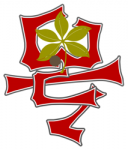
The 4th Workshop on Innovations in Cantonese Linguistics (WICL-4) will take place on June 23 and 24, 2018, at the University of British Columbia, Vancouver, Canada. The conference focuses on new advances in Cantonese Linguistics, including new approaches to theory and data, methodologies, and applications. New research on geographical variations, overseas speaker communities, and pedagogical issues are especially welcome.
Conference venue: Point Grey Campus, University of British Columbia, Vancouver, Canada
Conference email: wicl.4@ubc.ca
Faculty co-chairs: Raymond Pai and Qian Wang
Student chair: Zoe Lam
Organizing committee: Lauretta Cheng, Liam Doherty, and Blair Zheng
Logo designed by: Honglin Du (都虹霖)
Keynote Speakers
 |  | 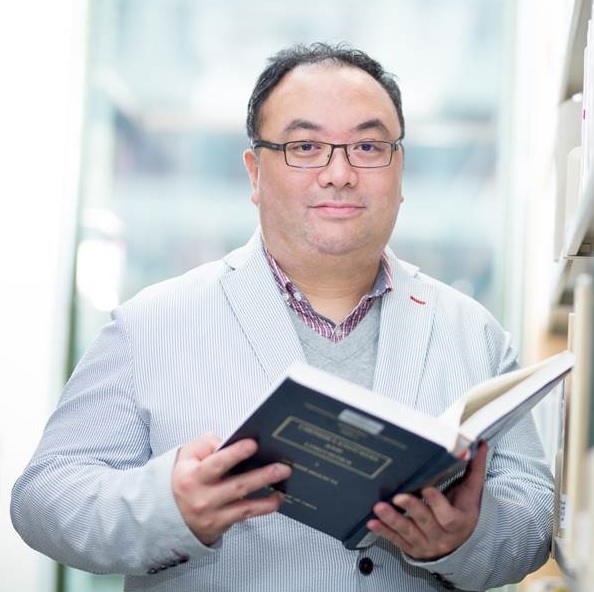 |
| Professor Molly Babel | Professor Dana Scott Bourgerie | Professor Andy Chin |
| The University of British Columbia | Brigham Young University | The Education University of Hong Kong |
Abstracts of keynote talks (click to expand)
Variation and flexibility in speech perception and production are important hallmarks of language vitality. In this talk I explore Cantonese listeners’ and speakers’ phonetic variation and flexibility. In the Cantonese of Vancouver-based Cantonese-English bilinguals, we might anticipate the variability and flexibility to be shaped by two primary forces. For one, the population of Cantonese speakers in the Lower Mainland is geographically removed from the homeland hub of Cantonese speakers in Hong Kong, providing opportunity for independent language development and change in local speakers of Cantonese and inviting the question as to whether certain sound changes-in-progress are advancing in similar fashion in Vancouver and Hong Kong. A second important factor to consider in Vancouver Cantonese is that most of the local speakers have knowledge of English, and bilingual speakers typically show bidirectional influences in both of their languages (Flege, 1987). Moreover, many Vancouver Cantonese speakers can be described as heritage speakers who learn Cantonese at home as their first language, but often go on to be dominant in English, the most prominent local language. Heritage speakers are characterized as highly heterogeneous in terms of their language experiences and bilingual proficiency, often showing patterns of behaviour that are unique compared to more L1-dominant speakers and late L2 learners (Chang et al, 2011). Given this, do Vancouver Cantonese listeners show the perceptual flexibility typical of monolingual native speakers (e.g., Bruggeman, 2016)? I address these questions as I present the results of two experiments that examine sound change-in-progress and perceptual adaptation in Vancouver-based Cantonese speakers.
There has been a Chinese population in Cambodia for at least 500 years and contact with Cambodia was mentioned by the eminent China emissary Zhou Daguan (Customs of Cambodia) as early as 1296 during his travels there. Despite a relatively high degree of integration into to the majority Cambodian culture, ethnic Chinese have maintained their own social organizations, news media, and schools. Until the Khmer Rouge forced closure of Chinese schools in the mid-nineteen seventies, Chinese schools adopted the dialect of their affiliated socio-cultural associations. However, in recent times Mandarin has become the lingua franca of the Sino-Cambodia community and of most local Chinese language schools. However, among ethnic Chinese there are few if any native speakers of any variety of Mandarin. Through examination of survey data and recorded interviews, this presentation sketches a picture of the contemporary Chinese community in Cambodia with reference to the larger former French Indochina region and with particular attention to the Cantonese population. In particular, I outline some of the possible language change occurring by contact with the majority Khmer language, colonial French, as well influence of Mandarin as a second-dialect. Evidence of contact can be found in the phonology (e.g., implosive initial stops and nasalized vowels), the lexicon, and phrasal ordering (e.g., adjective placement).
This talk discusses how big data - linguistic corpus - can benefit Cantonese studies. Corpus data provide us with quantitative and qualitative information to look at how the language is actually used. Taking a bottom-up approach, we can sometimes find from the corpus new patterns and topics for research. The talk will be divided into three parts: The first part introduces The Corpus of Mid-20th Century Hong Kong Cantonese such as its design and source of data. In the second part, I will discuss how the corpus data can be used for (a) language teaching; (b) pragmatic and discourse analysis; (c) exploring the inter-relationship between language, society and cognition. Some of these topics did not receive much attention in previous studies on Cantonese. The talk will conclude with a demonstration of the phase 2 of the corpus.
Announcements
2018.06.30: Thank you for your support to WICL-4! Here is a recap of the workshop.
2018.06.18: Registration for the banquet has closed; however, everyone is welcome to attend the talks. The program e-booklet is available below.
2018.05.01: Due to unforeseeable circumstances, Dr Robert Bauer and Dr Anne Yue-Hashimoto are no longer able to join us as keynote speakers. Now our keynote speakers will be Dr Molly Babel, Dr Dana Bourgerie, and Dr Andy Chin. We look forward to their talks!
2018.04.01: The program schedule is available below, and registration is open now. Please complete the registration form on this page by May 31.
2018.03.31: The program of our sister conference Cantonese Worlds 2 (June 21-22, before WICL-4) is available.
2018.03.20: We are recruiting volunteers. Please complete this form if you are interested in volunteering.
2018.02.01: Decision notices have been sent to all authors who submitted an abstract.
2017.11.30: Abstract submission has closed. Authors will receive acceptance/rejection notices in late January, 2018.
Program Schedule
Click here if the document does not display properly.
Program E-booklet
Registration
Update on June 18: Registration for the banquet has closed; however, everyone is welcome to attend the talks.
Click here if the form does not display properly.
More information
Click the tabs to view
The Workshop on Innovations in Cantonese Linguistics (WICL) has been held every other year since the inaugural event held at the Ohio State University in 2012. You can visit this page to learn more about past WICLs.
Abstracts are invited for 20-minute oral presentations related to innovative research in any subfield of Cantonese linguistics and related disciplines. Submissions are limited to one single-authored paper and one joint-authored paper per person. Deadline: November 30, 2017, 11:59 PM Pacific Standard Time The submission deadline has already passed.
Rates listed here are for reference only. Please click on the links to check the most up-to-date rates. For presenting attendees For non-presenting attendees
A block of rooms in UBC St John's College (C$85.5 per night) is available for reservation. Please contact Ms Alice Lam <sjc.frontdesk@ubc.ca> for details.
The following places are within walking distance of the conference venue:
Getting to UBC from the YVR Airport Taxi: Taxis and wheelchair-accessible vehicles are available at taxi stands located on Level 2 of the Domestic and International Arrivals Area at YVR. The taxi fare from the YVR Airport to UBC is approx C$35 (tip not included). Check out the zone fare map here. Public transit: You are recommended to get a Compass Card if you are going to use public transit often. From the YVR Airport, take the Canada Line and get off at Broadway-City Hall. After you exit the skytrain station, you will be at the southeastern corner of an intersection. Cross the street to the northwestern corner of the same intersection and take a bus (Route 99). UBC is the last stop. Note that Uber is not available in Vancouver. Check out this page for more information. Getting to St John's College, UBC (recommended lodging) The address of St John's College is 2111 Lower Mall, Vancouver BC V6T1Z4. Here is another map showing the location of St John's College and parking spaces in UBC. Getting to UBC Asian Centre (conference venue) The address of UBC Asian Centre is 1871 West Mall, Vancouver, BC V6T 1Z2. It is only a 7-minute walk from UBC St John's College. Parking Parking info and rates can be found here. The Fraser River Parkade is the closest spot near the event venue. Free parking can sometimes be found along NW Marine Drive near the Nitobe Garden.
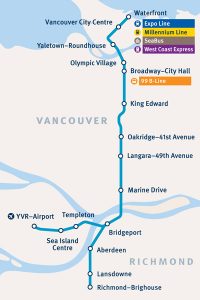
It takes approx. 15 minutes to walk from UBC Bus Exchange to St John's College.
Alternatively, you can take 68 from UBC Bus Exchange and get off at University Boulevard. Regular bus fares apply.
Food on campus Close to the event venue: Within UBC but not super close to the event venue: Click here for more options. Things to do in UBC More recommendations can be found here. Things to do in Vancouver More recommendations can be found here.
Download a campus map here.
Download a map of downtown Vancouver here.
This event is supported by:
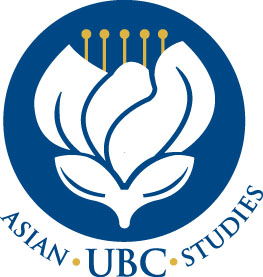
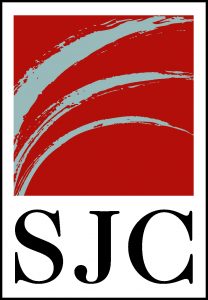
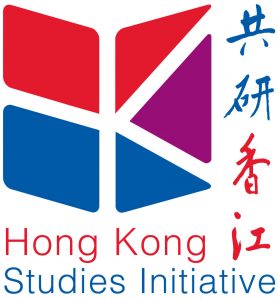

 Faculty of Art
Faculty of Art